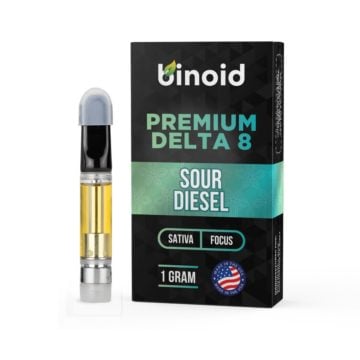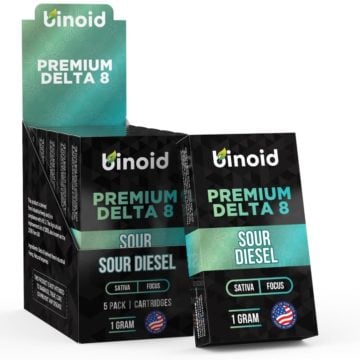
Is Recreational Weed Legal in New Jersey
- Overview of Recreational Weed Legalization in New Jersey
- Legal Age and Limits
- Retail Dispensaries and Licensing
- Permitted Use and Possession
- Home Cultivation Regulations
- Taxation of Recreational Marijuana
- Impact on Law Enforcement
- Public Attitudes and Impact
- Comparison with Medical Marijuana Laws
- Future Outlook and Potential Changes
- Conclusion
In this article, we will explore the current legal status of recreational weed in New Jersey. We’ll delve into the regulations, laws, and key points surrounding the use and possession of recreational marijuana in the state.
This post is intended as information and for general knowledge only. It is not a substitute for medical advice, diagnosis, or treatment. It is recommended that you talk to a healthcare professional about this before introducing cannabinoids into your daily routine (especially if you have been diagnosed with any medical conditions or are under any medication). It is not recommended to drive or operate any machinery when using cannabis- or hemp-derived products. Use responsibly!
Overview of Recreational Weed Legalization in New Jersey
The question of whether recreational weed is legal in New Jersey was answered definitively when the state took the monumental step of legalizing it. This marked a significant shift in policy, with New Jersey joining the ranks of other progressive states like New York and New Mexico. The legalization of recreational marijuana was not a sudden occurrence; it followed a series of legislative efforts, and its approval was a result of a diligent process.
The journey toward legalization was not without its challenges. Governor Phil Murphy, a strong advocate for marijuana legalization, faced resistance from some quarters. However, his persistence paid off when the New Jersey Cannabis Regulatory Commission was established to oversee the implementation and regulation of the legal cannabis market.
Legal Age and Limits
One of the fundamental aspects of legalizing recreational marijuana is setting an appropriate age requirement. In New Jersey, the legal age for purchasing and using recreational weed is 21, akin to the regulations for alcohol consumption. This aligns with the age restriction in neighboring states like New York and ensures that only adults can engage in recreational cannabis use.
In terms of possession limits, individuals are allowed to possess up to a specified amount of marijuana for personal use. This limitation prevents excessive possession, promoting responsible use and discouraging illegal distribution. These limits are essential for maintaining a controlled and regulated environment.
Retail Dispensaries and Licensing
With the legalization of recreational weed, licensed retail dispensaries have emerged as key players in the distribution process. These dispensaries serve as authorized points of sale for various cannabis products, ensuring that consumers have access to a variety of options in a safe and regulated manner. Jersey City, for instance, has seen the opening of several dispensaries, catering to the needs of the local population.
Obtaining a license to operate a retail dispensary involves navigating a complex process. The New Jersey Cannabis Regulatory Commission has established stringent requirements to ensure that only qualified entities participate in the legal marijuana market. This approach is crucial for maintaining the integrity of the system and preventing misuse.
Permitted Use and Possession
Understanding where and how recreational marijuana can be consumed legally is essential for both residents and visitors. Private residences are generally considered permissible locations for cannabis use, allowing individuals to enjoy their products within the confines of their homes. However, designated public areas for consumption are limited, and restrictions are in place to prevent public nuisance.
Additionally, guidelines for possessing and transporting marijuana within the state are outlined to prevent misuse. While recreational marijuana is legal, it’s important to be aware of the rules surrounding its transportation, especially when driving. Law enforcement agencies continue to play a vital role in ensuring that these rules are followed, contributing to the overall safety of the public.
Home Cultivation Regulations
For those interested in a more hands-on approach to their cannabis consumption, New Jersey’s regulations also address home cultivation. While recreational marijuana can be legally grown at home, there are limitations to prevent abuse of the system. Individuals are permitted to cultivate a maximum number of plants within their households, and specific regulations may govern aspects like lighting and visibility to maintain the aesthetic of neighborhoods.
Taxation of Recreational Marijuana

The legalization of recreational marijuana brings not only personal freedoms but also economic opportunities. Taxation of recreational weed sales generates revenue that can be allocated to various sectors of the state. This revenue can bolster education, healthcare, and law enforcement initiatives, contributing to the overall well-being of New Jersey residents.
Impact on Law Enforcement
The change in marijuana’s legal status has inevitably influenced law enforcement policies. With recreational marijuana no longer a criminal offense, law enforcement agencies have shifted their focus toward more pressing matters. This change allows resources to be reallocated to areas that require more immediate attention, creating a more efficient system overall.
Public Attitudes and Impact
The decision to legalize recreational weed was not made in isolation; it reflected the evolving attitudes of New Jersey residents. A significant portion of the population supported this move, as evidenced by surveys and studies that gauged public opinion. Since legalization, the impact has been multifaceted. Job creation within the cannabis industry has provided new opportunities for employment, and the state has seen an increase in tourism from neighboring states where marijuana remains illegal.
Comparison with Medical Marijuana Laws
It’s essential to differentiate between recreational and medical marijuana regulations. While recreational use is now legal, medical marijuana has been available to qualified patients for some time. Medical cannabis serves as an alternative treatment option for patients with specific medical conditions, and the regulations governing its use and possession differ from those related to recreational cannabis.
Future Outlook and Potential Changes
The landscape of marijuana legalization is dynamic, and New Jersey’s approach is likely to evolve as well. As public opinion continues to shift, lawmakers may consider amendments to existing laws toaddress emerging concerns. Additionally, the recreational marijuana industry itself is not static; new products and consumption methods may come to the fore, necessitating regulatory adaptations.
Conclusion
As New Jersey joins the list of states legalizing recreational weed, understanding the intricacies of its regulations is essential for residents and visitors alike. This comprehensive overview sheds light on the various aspects of recreational marijuana legalization in the state, providing valuable insights into what is allowed and what to expect in the evolving landscape of cannabis legality. New Jersey’s journey toward legalization has not only granted personal freedoms but also ushered in economic opportunities and policy shifts that continue to shape the state’s trajectory.

















